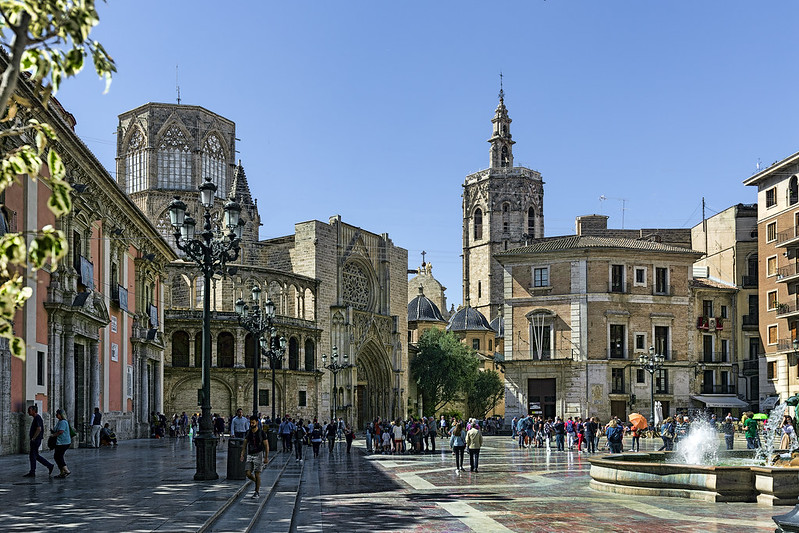
Photo: Miquel Fabre (Flickr)
Valencia plans low emissions zone reform to meet climate law
28 September 2022
by Christopher Carey
From 2023, the Spanish city of Valencia will introduce daily charges for polluting motorists as it upgrades its low emissions zone (LEZ).
The move will see the current zone – which is only activated during times of high pollution – being enforced throughout the year, and is part of city efforts to cut car use and reduce emissions.
Speaking to Cities Today on the sidelines of the City Leadership Forum in Madrid, Valencia’s sustainable mobility lead Giuseppe Grezzi said the exact details are still being worked out, but he expects the new zone to be up and running by early 2023.
“We’ll install 270 cameras to control [the zone] and we’re now working on the technical level to develop the rules.
“Soon we will start debates in the city with stakeholders.”
Under Spain’s 2021 climate change law, cities with more than 50,000 inhabitants must implement a LEZ in 2023, though specifics are vague and the size and scope of this is currently at each city’s discretion.
The exact charge polluting motorists will incur has not yet been finalised, with Grezzi saying this detail still needs to be decided at the national level.
“We are still waiting on a law from the national government that will create the basic rules.”
Cutting emissions
Environmental zones, known in Spain as Zona de Bajas Emisiones (ZEB) and Area Central Cero Emissions (ACCE), are designed to reduce air pollution and are usually divided into three or four different types.
In January 2020, Barcelona launched southern Europe’s largest LEZ – covering 95 square kilometres.
The zone operates from Monday to Friday, from 7am-8pm, with 150 cameras installed to monitor vehicles and fines ranging from €100 ($US97.46) to €1,800.
In Madrid, the Central District Special Protection Low Emissions Zone (ZBE), formerly known as Central Madrid, only allows access and circulation to cars and vehicles with a ZERO and ECO label – although, it has an extensive list of exceptions.
The Spanish capital will also soon have another ZBE, the Plaza Elíptica, set to be up and running in December 2022.
In this zone, access will only be permitted to vehicles with a label A rating – the most environmentally friendly category.
Image: Miquel Fabre (Flickr)













